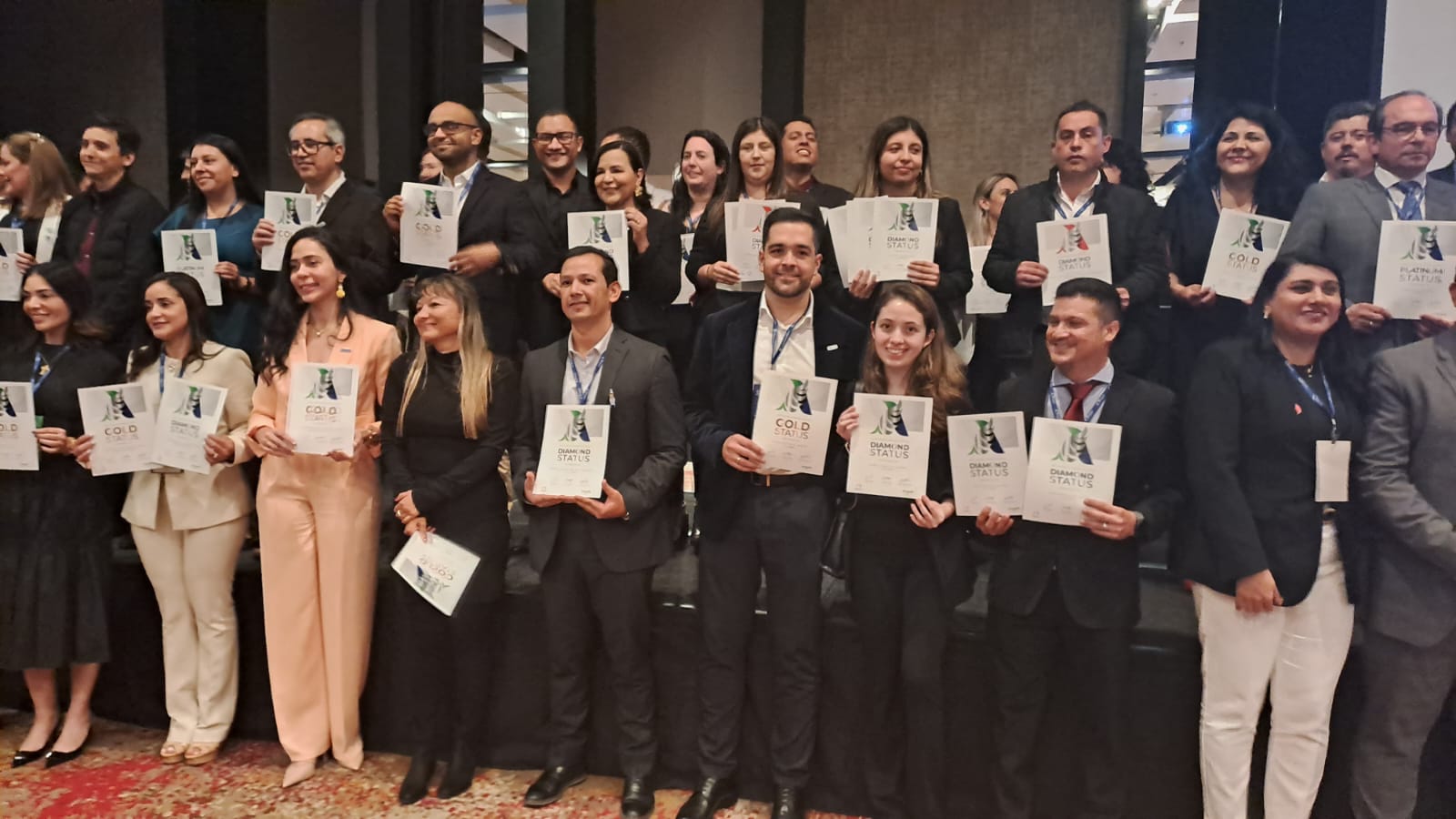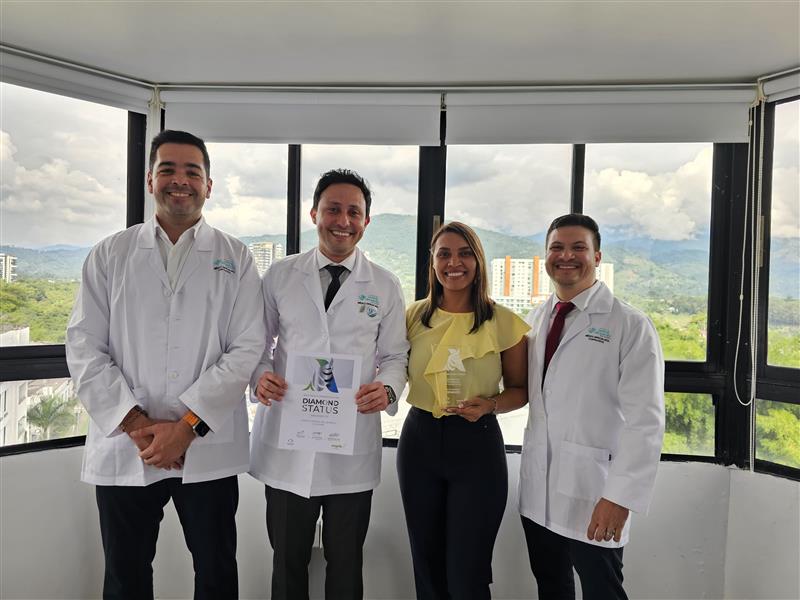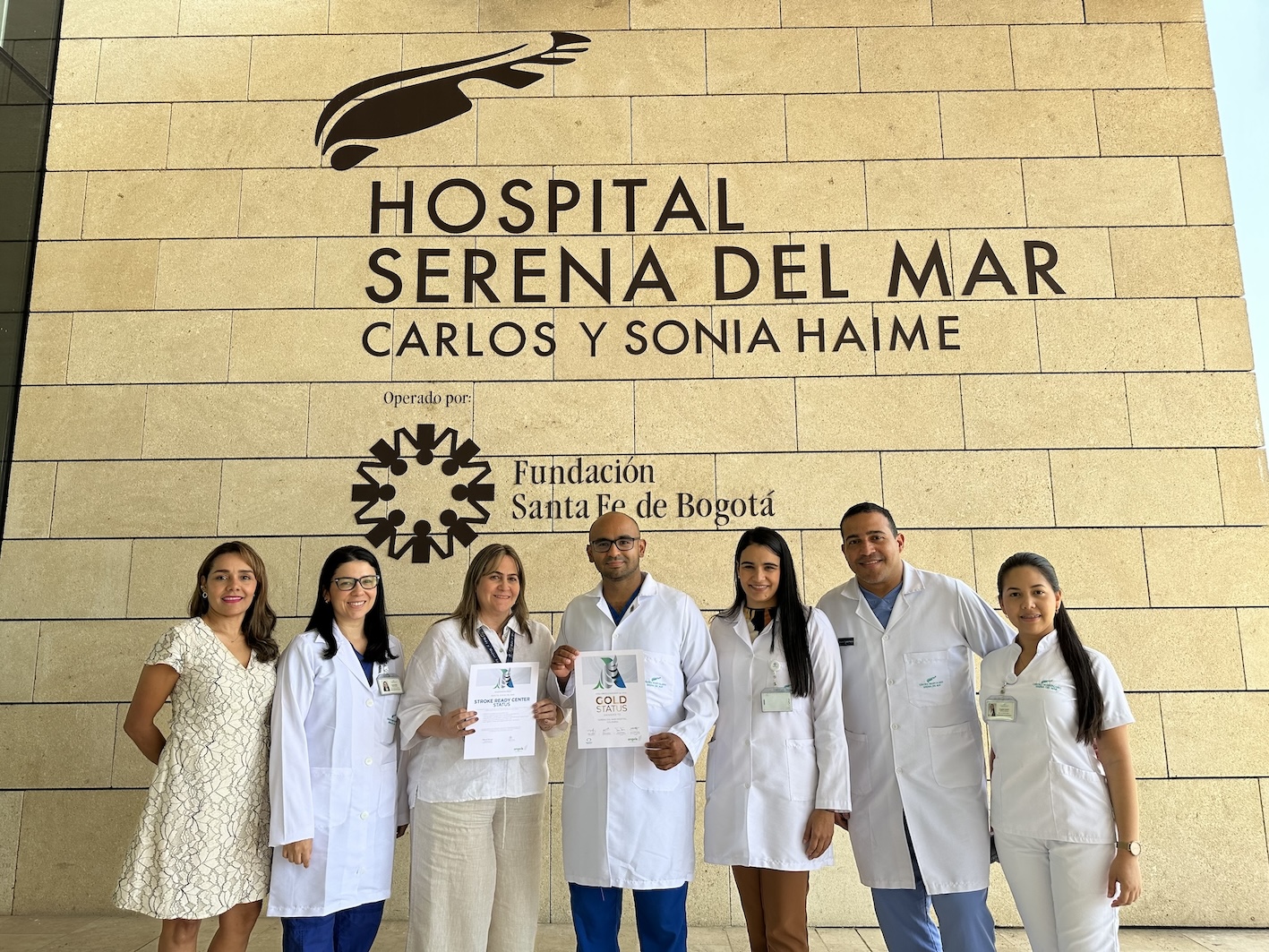Quando un ex collega ha avuto un ictus e non ha ricevuto il trattamento in tempo, è stato un punto di svolta per l’ospedale Cruz Roja di Cordoba. Il loro percorso verso la partecipazione alla rete per l’ictus nella loro regione ha avuto inizio con una chiamata alla Consulente Angels Alicia Arjona...
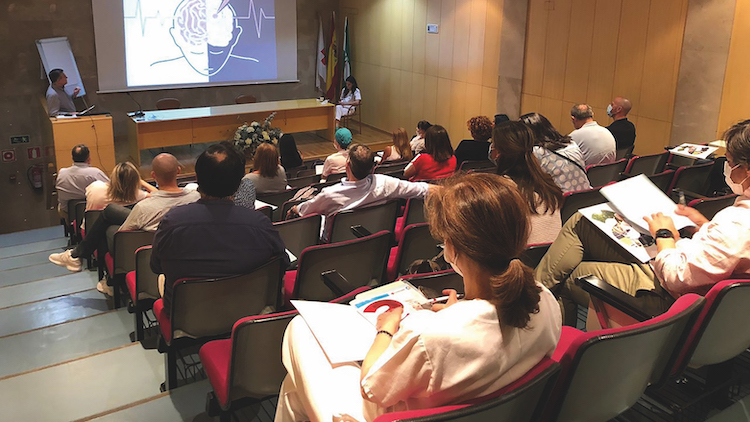
Lavorare in ospedale significa vedere ogni giorno pazienti con tutti i tipi di sintomi e disturbi. La pandemia ha portato ancora più pazienti, molti dei quali non potevano essere salvati. Ma cosa succede se un paziente si presenta in ospedale con un tipo particolare di ictus? E se il vostro ospedale non fosse attrezzato per diagnosticare e gestire efficacemente tali pazienti?
Peggio ancora, cosa succede se questo paziente è qualcuno che conosce personalmente, come un collega ad esempio? Questa esperienza romperebbe il tuo spirito o ti motiverebbe a cambiare? Nel caso dell’Hospital Cruz Roja di Cordoba (HCRC), questa esperienza ha portato a un nuovo inizio.
Un medico dell’ospedale di recente pensionato si è recato al emergenza segnalando che non si sentiva bene da diverse ore. I medici presenti hanno misto i sintomi delle vertigini, un comune imitazione dell’ictus e come correlati alla precedente anamnesi di fibrillazione atriale. È rimasto in ospedale per essere monitorato e curato. Quando è caduto mentre cercava di camminare, ha deciso di portarlo nella sala TC e ha scoperto un infarto cerebrale. A quel punto, purtroppo era troppo tardi per fare qualcosa contro l’ictus.
Il codice ictus a Cordoba e in tutta l’Andalusia specifica che gli ictus devono essere trattati negli ospedali pubblici che fanno parte della rete dell’ictus. Cordoba ha uno di questi ospedali, un centro comprensivo, e se uno degli altri ospedali della città riceve un paziente colpito da ictus, deve inviare le scansioni TC a questo centro per ulteriori istruzioni e l'eventuale trasferimento.
Tuttavia, Cordoba è una grande città con una popolazione significativa per avere un solo centro ictus. Ecco perché, nonostante la pandemia, l’Unità di terapia intensiva diretta dalla Dott.ssa Noelia Munoz e il Dipartimento di neurologia guidato dal Dott. Roberto Valverde dell’HCRC hanno deciso di iniziare a trattare i pazienti colpiti da ictus e implementare un codice formale per lictus.
Hanno invitato il consulente Angels della regione, Alicia Arjona, a fare un brainstorming sulle soluzioni e sui prossimi passi da implementare nei loro protocolli. Quindi hanno riunito tutto il personale ospedaliero, indipendentemente dal loro ruolo, per annunciare l’obiettivo: all’arrivo di un nuovo gruppo di pazienti, tutti avrebbero dovuto avere le informazioni essenziali per riconoscere un ictus e sapere come procedere.
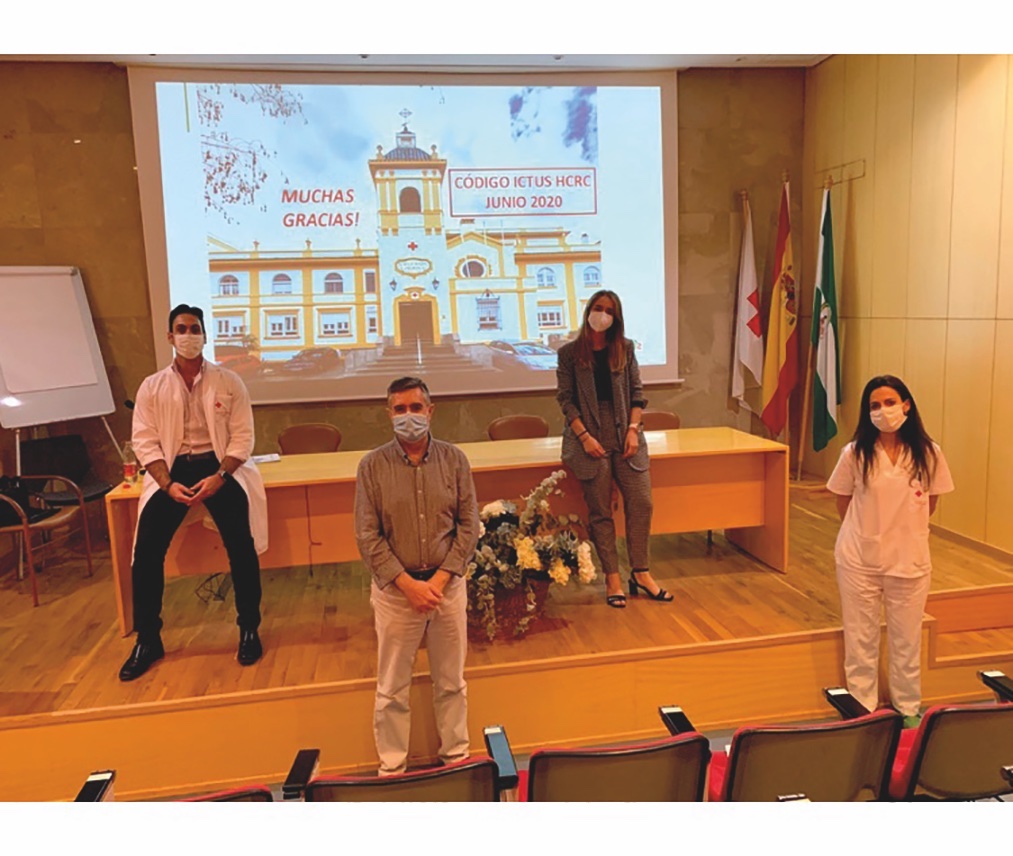 È stato creato un gruppo di lavoro multidisciplinare, chiamato Brain Team. “Ha davvero compreso il potere del lavoro di squadra nella la cura dell'ictus”, afferma Alicia Arjona. “Ha incluso tutti in ospedale nello sviluppo del percorso e della formazione per l’ictus. E il team ha lavorato per far capire a tutti che sono una parte essenziale di questo percorso”.
È stato creato un gruppo di lavoro multidisciplinare, chiamato Brain Team. “Ha davvero compreso il potere del lavoro di squadra nella la cura dell'ictus”, afferma Alicia Arjona. “Ha incluso tutti in ospedale nello sviluppo del percorso e della formazione per l’ictus. E il team ha lavorato per far capire a tutti che sono una parte essenziale di questo percorso”.
Il team ha sviluppato uno spirito di miglioramento e collaborazione. Il dott. Munoz e il dott. Valverde hanno organizzato con attenzione corsi di formazione che potrebbero coinvolgere tutti senza violare alcuna regola di igiene e distanziamento sociale.
Nel corso di diversi giorni a maggio, hanno insegnato al personale il triage corretto, la fase iperacuta, la valutazione neurologica NIHSS e le migliori pratiche nell’assistenza post-acuta. Hanno scelto l’obiettivo difficile di un tempo dall’tempo tra l’arrivo in ospedale e l’inizio della trombolisi di 25 minuti; sono stati messi in atto poster di Helsinki per registrare i dati e l’uso delle liste di controllo è stato stabilito come parte del protocollo.
Lavorando con Angels, hanno anche condotto simulazioni che comprendevano due scenari diversi: un paziente con ictus colpito da ictus Covid-19-negative, che coinvolgeva Servizi d'emergenza, e un paziente con ictus Covid-19-suspected che è arrivato in ospedale da solo.
Entro maggio di quest’anno l’ospedale Cruz Roja aveva già trattato con successo i primi 10 pazienti colpiti da ictus acuto. Il trattamento avviene nella sala TC, con la borsa per ictus pronta e l’intero personale della stroke unit ha programmato regolarmente riunioni di monitoraggio della qualità per identificare le barriere e continuare a migliorare.
I pazienti colpiti da ictus sono ancora ricoverati in UTI poiché il numero di pazienti con Covid-19 non ha consentito loro di allocare posti letto in una stroke unit specializzata. Tuttavia, questo rimane il loro obiettivo da implementare non appena la pandemia lo consentirà.
Non solo sono stati rafforzati i legami tra porter dell’ospedale, medici del pronto soccorso, medici dell’UTI, Servizi d'emergenza, infermieri, neurologi, amministratori dei dati dei paziente e radiologi nell’interesse di esiti migliori per i pazienti colpiti da ictus; l’ospedale ha anche adottato l’ideologia Angels e comprende l’importanza della comunità. Condividendo la loro anamnesi, vogliono dare agli altri la fiducia necessaria per trattare i pazienti colpiti da ictus e incoraggiarli a seguire i loro passi.
La dott.ssa Noelia Munoz dichiara: “Angelsha contribuito all’implementazione di un cambiamento culturale fino a quando il bene non migliora e diventa meglio. Una catena è forte quanto il suo anello più debole... una catena di gestione e trattamento dei pazienti colpiti da ictus in ospedale.
“Crediamo fermamente nella catena della sopravvivenza: Si riferisce a una serie di azioni che, eseguite correttamente, riducono la mortalità associata a questi interventi sensibili ai tempi, eseguiti dalle persone. Deve essere massimizzata e ottimizzata, quindi anche la qualità della vita è inclusa in questa sopravvivenza.
“Grazie ai pazienti per la vita quotidiana” le lezioni. È stato un paziente con ictus a darci l’opportunità di cambiare la nostra vita, più di un paziente con ictus. Siamo ora coinvolti in questo straordinario progetto grazie a lui [il paziente]”.

